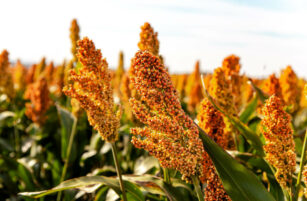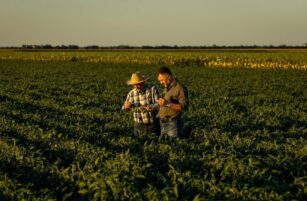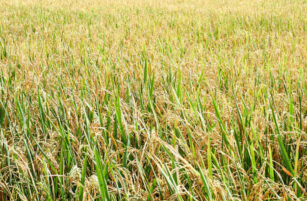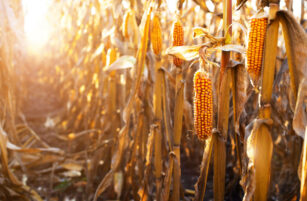Insight Focus
- Several EU member states act to protect local farmers.
- Bans allow transit of Ukrainian grains through countries.
- Brussels is offering aid to try to avoid further unilateral action.
Forecast
No changes to our Chicago Corn average price forecast for the 22/23 (Sep/Aug) crop in a range of 6 to 6,5 USD/bu. The average price since Sep 1 is running at 6,7 USD/bu.
Market Commentary
Volatility on the back of the Black Sea corridor and weather resulting in a slight positive week for Corn while negative for Wheat. Brazilian values plummeted on the back of a big crop and the strength of the BRL.
The week started positive with vessel inspections suspended in the Black Sea corridor but it corrected during the second half of the week as the Black Sea flow resumed and a clearer picture of ample supply is consolidating.
Further initial support also came from several European countries banning imports from Ukraine to protect their farmers, which by the end of the week most of them continued with the ban but allowed transportation of Ukrainian grains through their countries thus the flow of grains will not stop. Aid coming from Brussels is being offered to affected farmers trying to avoid unilateral measures by EU member countries.
In the US, Corn exports inspections were supportive last week and the outlook for the new crop is looking good with Corn being 8% planted ahead of 4% last year and vs. 5% of the five year average. Is still early in the planting season but is a good start and takes risk off the table around the size of the crop to be harvested next autumn.
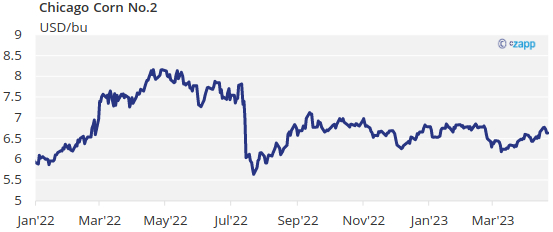
In Brazil, the Soybean harvest is 85% complete vs. 87,1% last year. The second Corn crop planting has virtually finished as it is 99,9% complete. And the first Corn crop is 55,8% harvested vs. 60% last year.
In the Wheat front, US Wheat condition is 27% good or excellent unchanged week on week and vs. 30% last year. French Wheat condition was 93% good or excellent one point lower week on week vs. 91% last year.
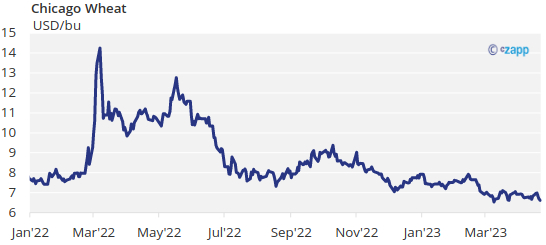
The Black Sea corridor saw ups and downs last week with inspections suspended between Monday and Tuesday and then they were resumed on Wednesday. Still new deals are running slow as the vessel queue continues close to 100 and the extension of the agreement beyond May is still a question mark.
In the weather front, freezing temperatures and rains are expected in the US growing areas which will post a risk to Corn and Soybeans that have been already planted. Brazil is expected to receive cold weather and rains in parts of the center west region, while dry weather is expected in the south east. Europe is expected to have dry weather in the south and rains in the north. More and more forecasts are pointing for a strong El Niño in the coming months.
The IGC raised their global grain production forecast for 23/24 by 7 mill ton to 2,29 bill ton. The big growth comes from the Corn side which was forecast at 1,2 bill ton vs. 1,15 last year which is a 58 mill ton year on year increase recovering most of the losses of the previous year.
The big picture is that we have a recovery in production -both Corn and Wheat- which should put some pressure on prices. But the uncertainty around the Black Sea corridor limiting the flow of grains should be supportive but also volatile for prices, same as weather. Overall downside risk, but volatile.


